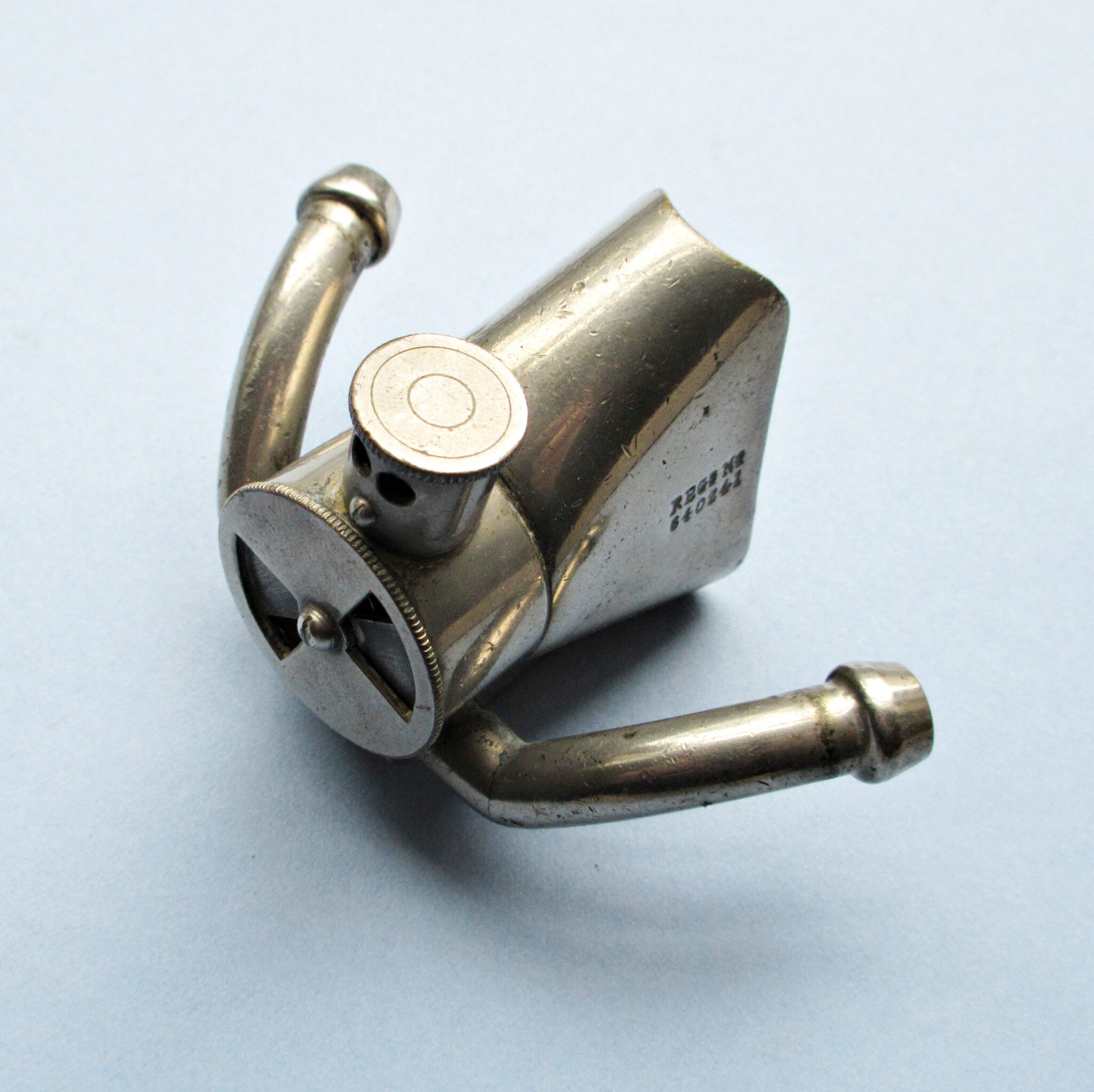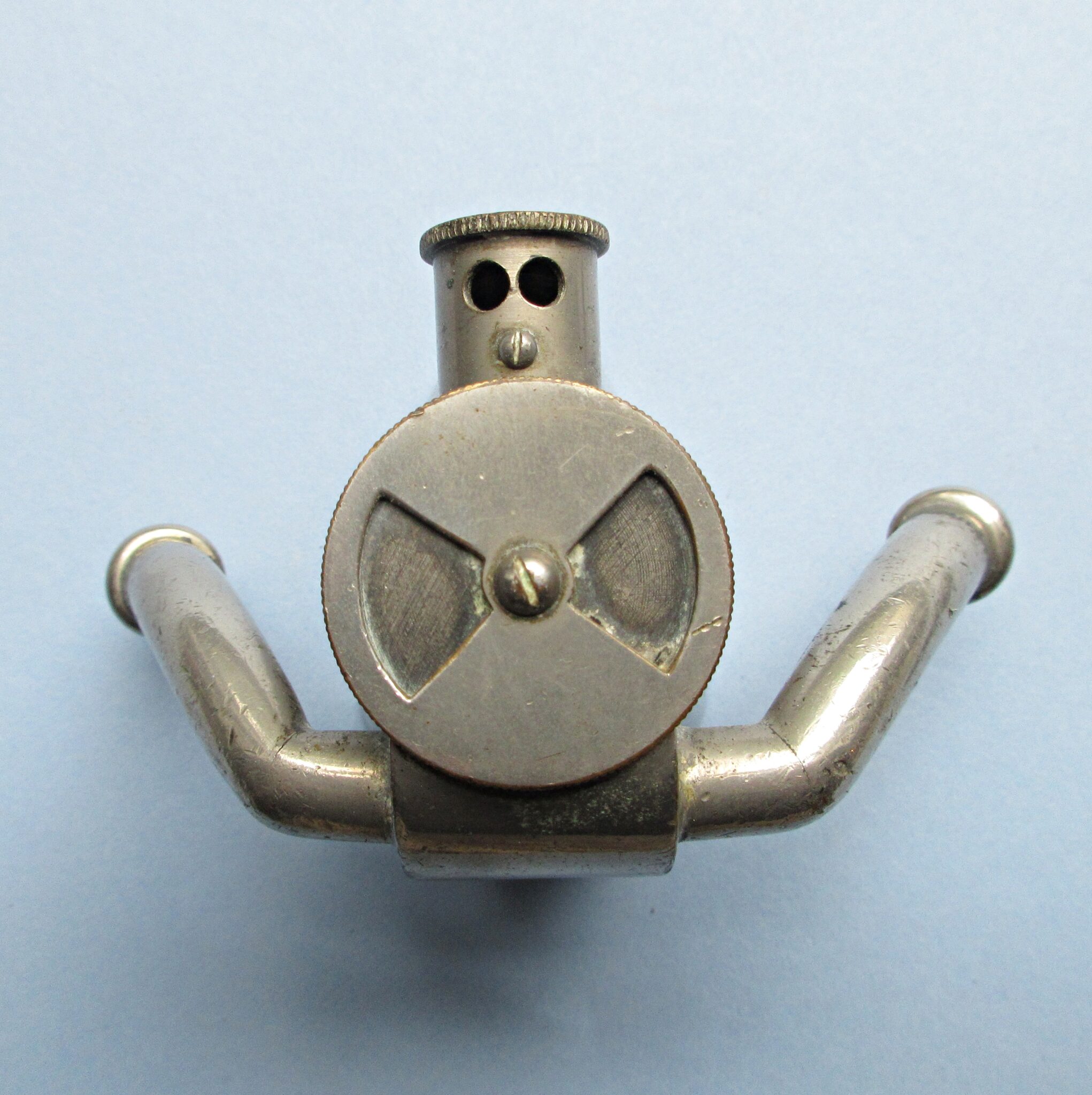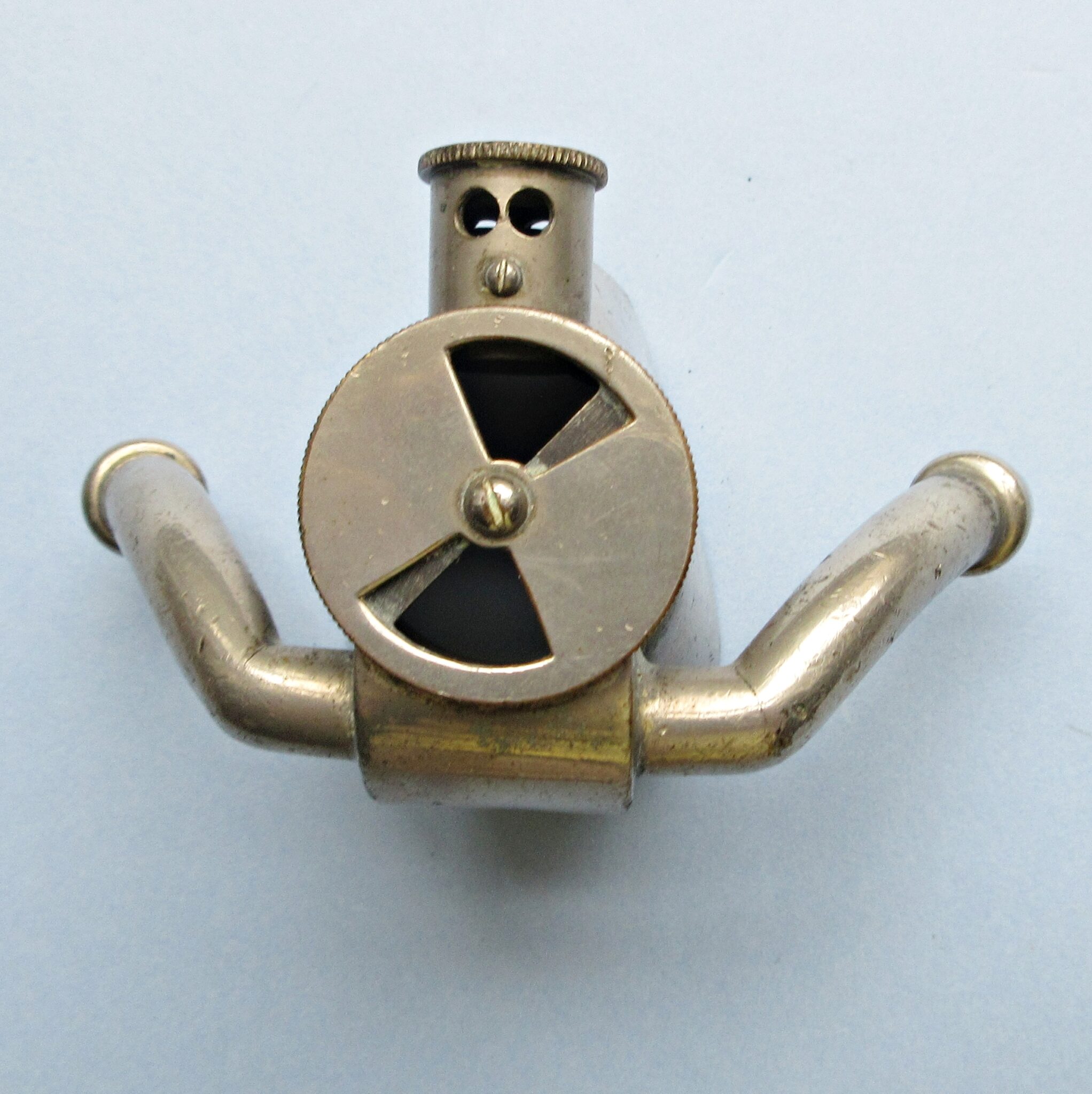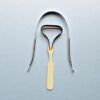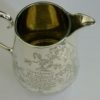Description
Variant of Weller’s Aseptic anesthesia Mask.This example appears to be German in origin and has a registry number that dates it to 1896. Our example was probably made some years later, as it is all metal–see below. It is in vg condition. The Wood Library of Anesthesia site, shows an earlier English version of this mask and provides the following details:
“In 1868, two decades after the introduction of nitrous oxide anesthesia, Chicago surgeon Edmund Andrews, M.D. (1824-1904) advocated the use of oxygen together with nitrous oxide for anesthesia. But it was not until the 1890s that apparatus was produced which could administer both nitrous oxide and oxygen.
A British inventor surnamed Weller, who is likely also to have been a dentist, is credited with several pieces of equipment marketed from the 1890s through the 1910s. These include masks, a stopcock and nitrous oxide-oxygen anesthesia apparatus. Each of these was similar to many other anesthesia apparatus available in that era. The London dental equipment manufacturer, Claudius Ash & Co. made several of these, including Weller’s Aseptic Mask. It is thought that Weller’s apparatus was a modification of Paterson’s much better-known nasal anesthesia apparatus, which was also made by Ash & Co.
Weller’s first masks were made of celluloid. This transparent material allowed the anesthesiologist to observe the patient’s lips without lifting the mask, but it could not be sterilized. By 1915, Weller’s all-metal aseptic mask was recommended, particularly “when tuberculous, syphilitic or other obviously septic persons are concerned.”
A British inventor surnamed Weller, who is likely also to have been a dentist, is credited with several pieces of equipment marketed from the 1890s through the 1910s. These include masks, a stopcock and nitrous oxide-oxygen anesthesia apparatus. Each of these was similar to many other anesthesia apparatus available in that era. The London dental equipment manufacturer, Claudius Ash & Co. made several of these, including Weller’s Aseptic Mask. It is thought that Weller’s apparatus was a modification of Paterson’s much better-known nasal anesthesia apparatus, which was also made by Ash & Co.
Weller’s first masks were made of celluloid. This transparent material allowed the anesthesiologist to observe the patient’s lips without lifting the mask, but it could not be sterilized. By 1915, Weller’s all-metal aseptic mask was recommended, particularly ‘when tuberculous, syphilitic or other obviously septic persons are concerned’.”
Ask the Dealer
Dealer information
 M and R Gordon
M and R Gordon
Michael and Roberta Gordon have been dealing in medical and dental antiques for more than four decades. They have helped build a number of major private collections and have contributed to the holdings of many museums. They also deal in other scientific and technology related items, including calculating instruments, office machines, patent models and wine-related accessories such as corkscrews. ROBERTA GORDON IS A SKILLED RESTORER WHO CAN HELP YOU WITH ANY INSTRUMENTS AND CASES THAT NEED ATTENTION. Feel free to contact them for details at: [email protected] or 718-541-5974



